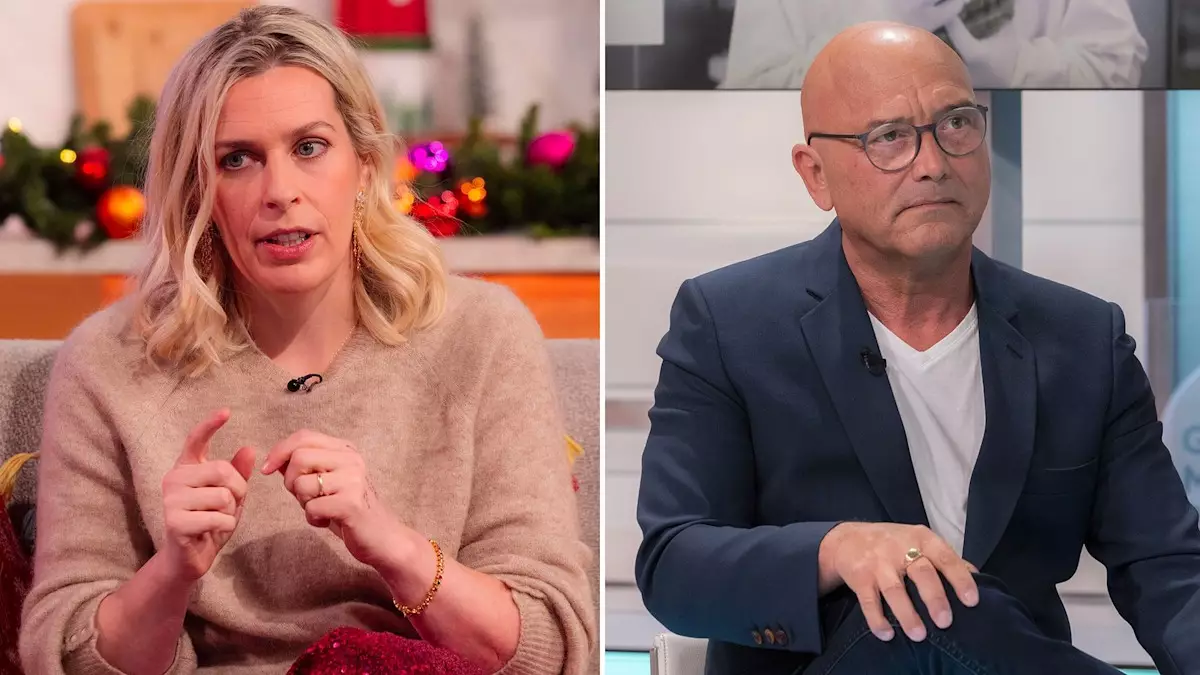Recent events in the world of television have brought to light the complexities of celebrity culture, particularly surrounding issues of misconduct and power dynamics. The latest incident involves prominent figures, including comedian Sara Pascoe and television presenter Gregg Wallace, whose recent remarks sparked heated discussions about gender and accountability in the entertainment industry. During a segment on the talk show “Lorraine,” Pascoe, known for her sharp wit, discussed the return of “The Great British Sewing Bee,” but quickly diverted to comment on the allegations facing Wallace. This transition not only highlighted the stark contrast between jovial programming and serious accusations but also the delicate balance such personalities must navigate in public discourse.
Pascoe’s reference to herself and Lorraine Kelly as “middle-aged women of a certain class” serves multiple functions. On one hand, it reflects a light-hearted banter common in media circles; on the other, it underscores the gravity of Wallace’s situation. Wallace recently found himself in the spotlight for facing allegations from 13 individuals, revealing a troubling pattern of behavior over the course of his lengthy career. The juxtaposition of humor and serious allegations in this exchange illustrates how the media often grapples with sensitive topics, attempting to balance entertainment with genuine concern. Their comments, such as Kelly’s assertion of being “formidable,” emphasize the strength and solidarity among women, but also suggest caution in confronting institutional power.
Wallace’s subsequent remarks in a video garnered widespread condemnation, perceived by many as dismissive and misogynistic. His defense hinged on minimizing the seriousness of the complaints, attributing them to a demographic stereotype of “middle-class women of a certain age.” This rhetoric not only alienates those raising concerns but also reduces a nuanced discussion of gender dynamics into a divisive and simplistic conversation. The backlash he faced is indicative of a larger societal shift towards holding celebrities accountable for their actions, especially in an era where survivors of inappropriate behavior are finding their voices.
Following the uproar, Wallace issued a public apology, claiming that his inflammatory comments were made while under emotional distress and that he needed time to process the unfolding events. While such admissions may signal a willingness to own up to one’s mistakes, they also highlight a troubling pattern among public figures—using apologies as a means to quell criticism rather than engage in meaningful dialogue about the implications of their actions. The contrast between his initial attitude and later contrition raises questions about authenticity and the true motivations behind public apologies.
The discourse surrounding this incident underscores the necessity for change within the entertainment industry. It prompts a critical examination of how misconduct is addressed and the responsibility that accompanies celebrity status. Instead of perpetuating cycles of denial and deflection, there is an urgent need for accountability and meaningful dialogue about gender dynamics. As conversations evolve, it becomes increasingly clear that the industry must prioritize the safety and dignity of all individuals, moving beyond surface-level engagements to foster genuine reform.

